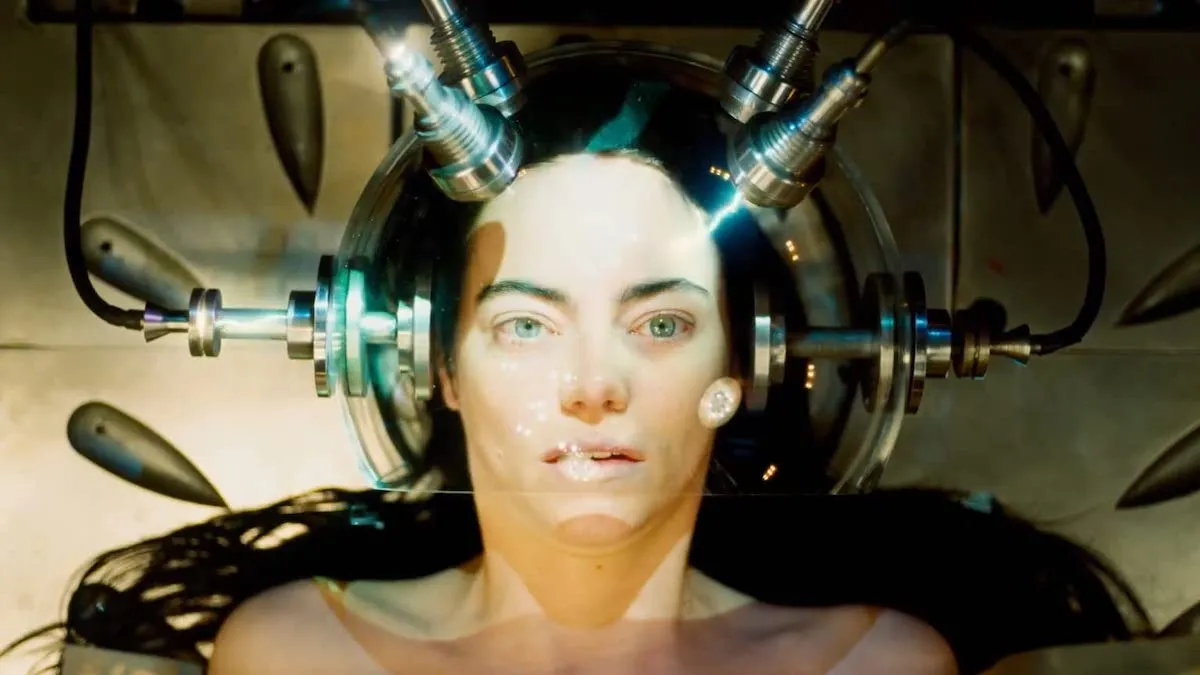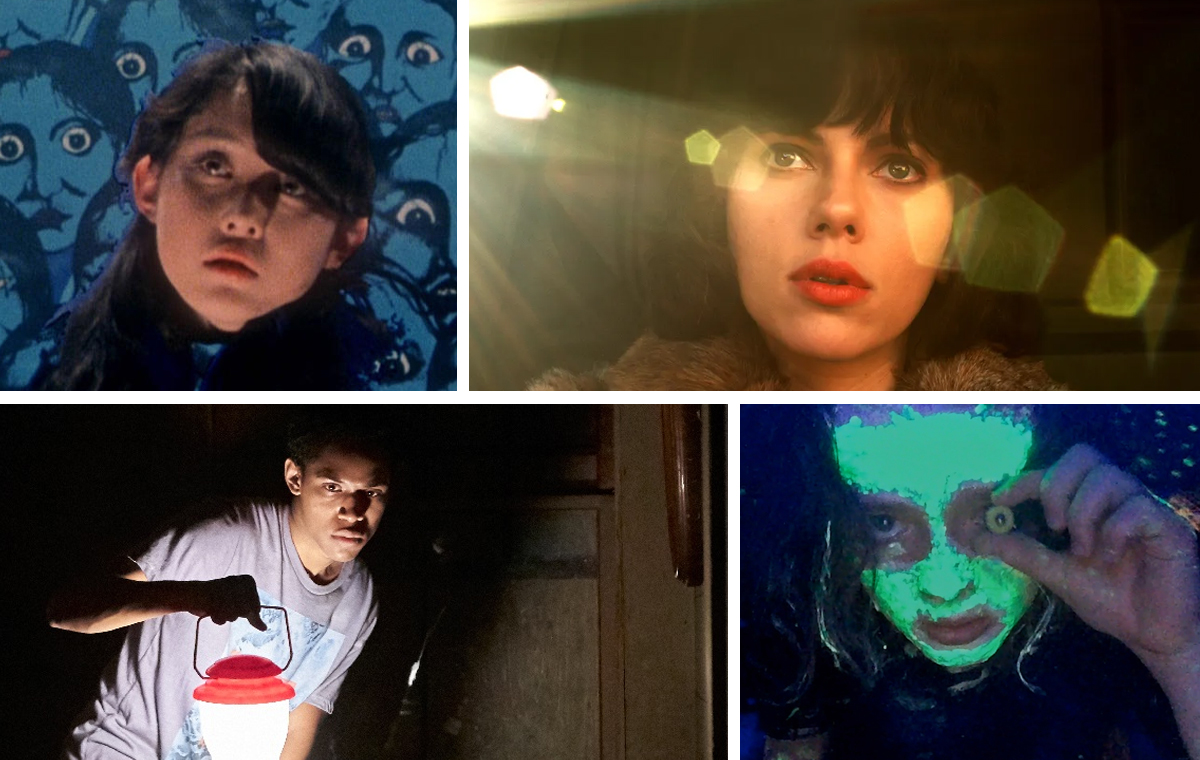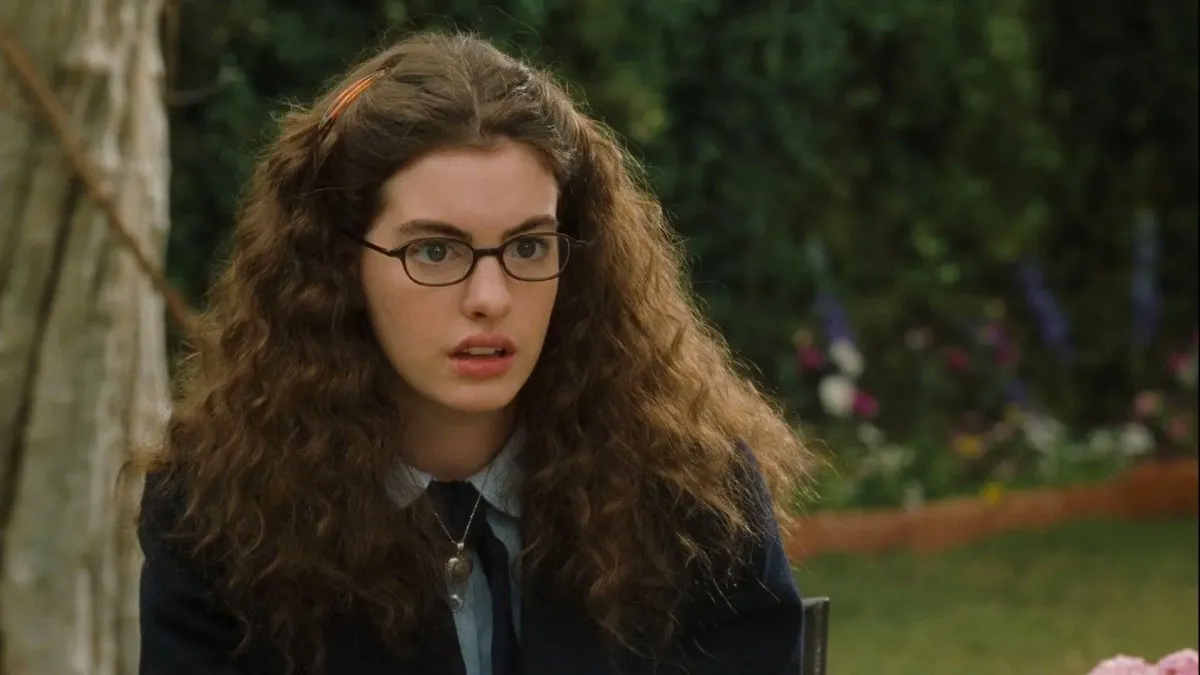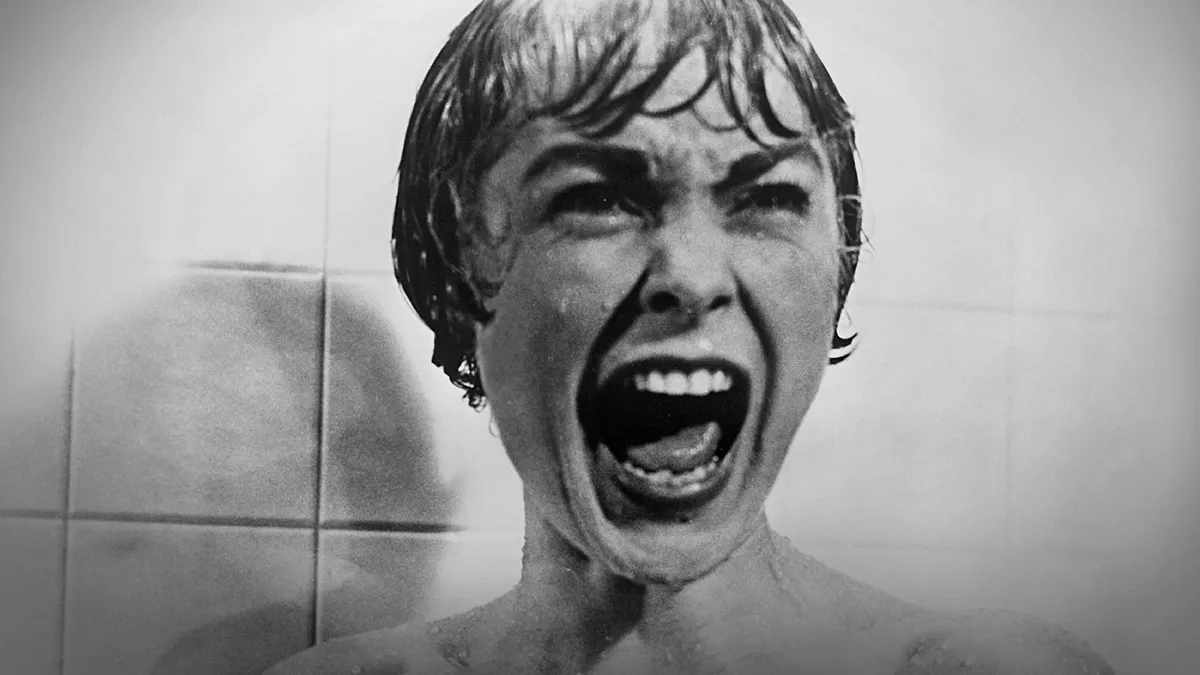Poor Things, Yorgos Lanthimos’ otherworldly new film based on the novel by Alasdair Gray, is equal parts beautiful and horrific. But the horror elements aren’t just there for shock value—they offer some profound and disconcerting questions about the nature of consciousness itself.
Major spoilers for Poor Things ahead! If you haven’t seen this fantastic movie yet, what are you even doing?
Poor Things tells the story of Bella (Emma Stone), a Frankenstein-esque human experiment who lives with her adopted father, Dr. Godwin “God” Baxter (Willem Dafoe). As Bella matures, she seeks adventure with the rakish Duncan Wedderburn (Mark Ruffalo), finding herself through sex, study, and human connection.
But there’s a dark secret lurking in the background of Bella’s adventures. Baxter lets Bella’s fiancé Max (Ramy Youssef) in on it, but Bella herself doesn’t learn it until late in the film. Bella isn’t just a run-of-the-mill reanimated corpse. It turns out that when Dr. Baxter found the body of Victoria Blessington floating in a river, he discovered that she was pregnant when she died. In order to bring the corpse back to life, Baxter removed the fetus’ brain and implanted it in the mother’s skull. Thus was Bella born.
You know, when you hit middle age and you’ve seen enough horror movies, you start to think that nothing can shock you anymore. Then you see that.
So if Bella is one person’s brain in another person’s body, what exactly does that make her? The most obvious answer is that she’s Victoria’s child, walking around in her own mother’s body. If our brains are what make us us—if we simply control our bodies like a puppeteer pulling the strings—then Victoria is dead. But in Poor Things, the answer isn’t so simple.
It’s hard to live inside a corpse without people recognizing the body’s former occupant, and sure enough, someone eventually approaches Bella and calls her Victoria. Later, Victoria’s husband Alfie (Christopher Abbott) shows up, insisting that Victoria is still married to him. He demands that she come home, and Bella agrees.
Here’s what’s fascinating about Bella’s decision: Victoria is technically dead, and Alfie is technically Bella’s father. Both those things mean that Bella isn’t Alfie’s wife. However, Bella never really brings either of those issues up, even though she’s aware of them. Instead, she takes Victoria’s place. She lets Alfie call her by her mother’s name. She never really seems to resist the idea that, in a way, she’s still Victoria.
So, again—who exactly is Bella? Is she the baby who grows up under Dr. Baxter’s care, or does part of Victoria live on in her resurrected body? It’s impossible to watch Poor Things and not think of what we know about the body’s influence on the mind: how what we think of as a disembodied self is actually a complex interplay of chemicals and nerves. Our cognition is affected by hormones released throughout our bodies. The lived experiences of our bodies shape our personalities. Even our gut biomes have a disconcerting influence on our minds.
This complexity comes through in Bella’s sexuality. Long before her brain matures to adulthood, she starts to experience sexual arousal. Throughout the movie, her sex drive steers her adventures, shapes her personality, and informs her worldview. At the end, we find out that Alfie hates Victoria’s “sexual hysteria.” Bella’s sexuality doesn’t seem to come from her brain, but rather from the body that holds it—yet those two halves of Bella mutually influence and reinforce each other. Bella is neither the baby nor the mother: she’s someone entirely new, a person who would have never existed without Baxter’s gruesome interference. (Note that this fact doesn’t cancel out the troubling ethics of the male characters in the movie, who see Bella as sexually available long before her mind has matured to adulthood.)
Poor Things centers on Bella’s quest to discover herself and carve out an identity of her own, which makes its questions of selfhood even more satisfying. If Victoria had lived, there would be no Bella, and the film forces us to contemplate both the tragedy of Victoria’s death and the wonder of Bella’s existence. Bella is literally more than the sum of her parts—a beautiful, unsettling creation—and in that, we might have more in common with her than we know.
(featured image: Searchlight Pictures)









